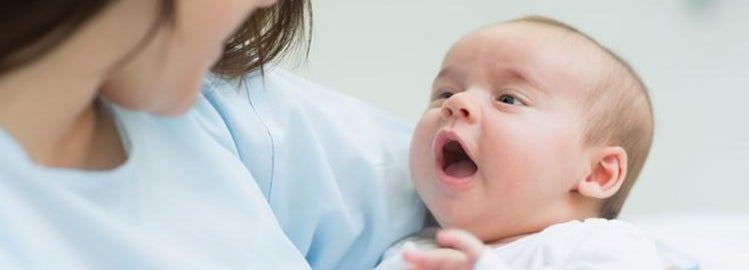The 7 Hidden Costs of Having a Baby

Having a baby is a life changing event. Not only are you adding a person into your family, but that little mini-you needs things like diapers, food, and furniture - which all adds up very quickly. CNN Money estimates that raising a child to the age of 18 costs over $225,000. We will be outlining seven items that may include some unexpected sticker shock, along with some tips on how to save.
Diapers
Diapers may be the single most expensive item you invest in for your baby. From birth to their second birthday, you will spend an average of $2,500 on disposable diapers - not including wipes or diaper rash cream. What’s worse is that as of October 2013, diaper companies are now “downsizing” their product packages, but keeping prices consistent-which means that parents are paying the same amount for fewer diapers.
How do you save on diapers? Go cloth! Cloth diapers are much cheaper than disposables (anywhere from $250-$500 for a complete set) and can be used on other kids. They are also easily washable in home washing machines. Cloth diapers have evolved from the prefold and “trash bag” pants of the past. They now offer options that make them just as easy (and way cuter) than disposables.
Formula
At an average of $30 per can, formula costs can add up quickly. One can lasts roughly a week. On average, a formula feeding parent will spend $1,800 during the first year alone on formula.
One solution? Breastfeed! Many women encounter issues while breastfeeding, but statistics show that 90% of women can successfully breastfeed when given the correct support. Breastfeeding is scientifically proven to be better for your baby, better for post-partum weight loss, lowers cancer risks, and helps fight post-partum depression. There are many lactation consultants across the world dedicated to helping nursing mothers breastfeed successfully.
Nursery Furniture
Cribs, changing tables, mattresses - all of these items add up quickly for a nursery. The average price of a crib is $350. That does not include a mattress, changing table, or dresser. All of these items together will run an average of $700.
How to get the biggest bang for your buck? Buy convertible beds/furniture, or just purchase a crib, and use previously-owned pieces to finish off the nursery. Many changing tables go completely unused, so discuss what works best for your family. Buying a used crib is risky. Many manufacturers warn against purchasing used cribs as previous wear and tear may render the crib unstable.
Car seats
Car seats are an absolutely necessary cost for new parents - a cost that you will shell out at least three times during your child’s life. An infant car seat will cost anywhere from $50-$400, and will fit the child from birth until around 30 lbs. Next up is a convertible car seat, which will fit the child from 30-65 pounds. A convertible car seat can face forward or toward the rear of the vehicle, as most experts recommend having the child face forward until at least a year old. These seats range in price from $60-$500. The final piece you will buy for your child is a booster seat, which will cost $20-200. The major reason for the price differences is safety features.
Saving money on a car seat can be tricky. Attempt to find a car seat that fits the widest size ranges available. Buying used car seats is considered acceptable; however, you should always inspect the car seat before purchasing. Lift off all the fabric parts and inspect for cracks and dents. Car seats also have expiration dates, so be sure to double check that the car seat will be good for the entire usage period you are purchasing it for.
Hospital Bill
Childbirth is an intense experience, and can be costly as well. Depending on the birthing method, one can expect to pay anywhere from $3,000-$40,000.
While uncomplicated births are the most affordable, C-sections and other higher-involvement births rack up costs quickly. Epidurals and other pain relief methods will raise the price of the birth exponentially. Since many hospitals are aware of the financial constraints on new parents, many will have payment options available to help ease the sticker shock.
Childcare
Childcare is a cost that many parents have to consider when planning a family. There is no strict average for childcare costs, as the numbers range due to factors such as the age of the child, health considerations, and length of stay. The average cost for childcare will depend on your region as well. Most daycares will range from $300-600 monthly for a two year old. Higher-income areas, like Boston and New York, average $1,000 per month for a two year old child in full time care.
While there is no direct way to save money on childcare, limiting the use of childcare, or applying for tax credits (where available) are wonderful ways to save.
Breast Pump
While breastfeeding is free, there are some parents who decide to purchase a breast pump so that family members and friends to feed the infant. Breast pumps can average in price from $100-$300.
Many new mothers find good prices online, and some even find that pumps are covered on their health insurance. So, before throwing down your hard earned money on a pump, make sure it’s not covered by your health insurance first.
Having a child is an expensive endeavor, to be sure. As you prepare for a little one entering the world, it's smart to start budgeting and making financial decisions that will help your family thrive.
